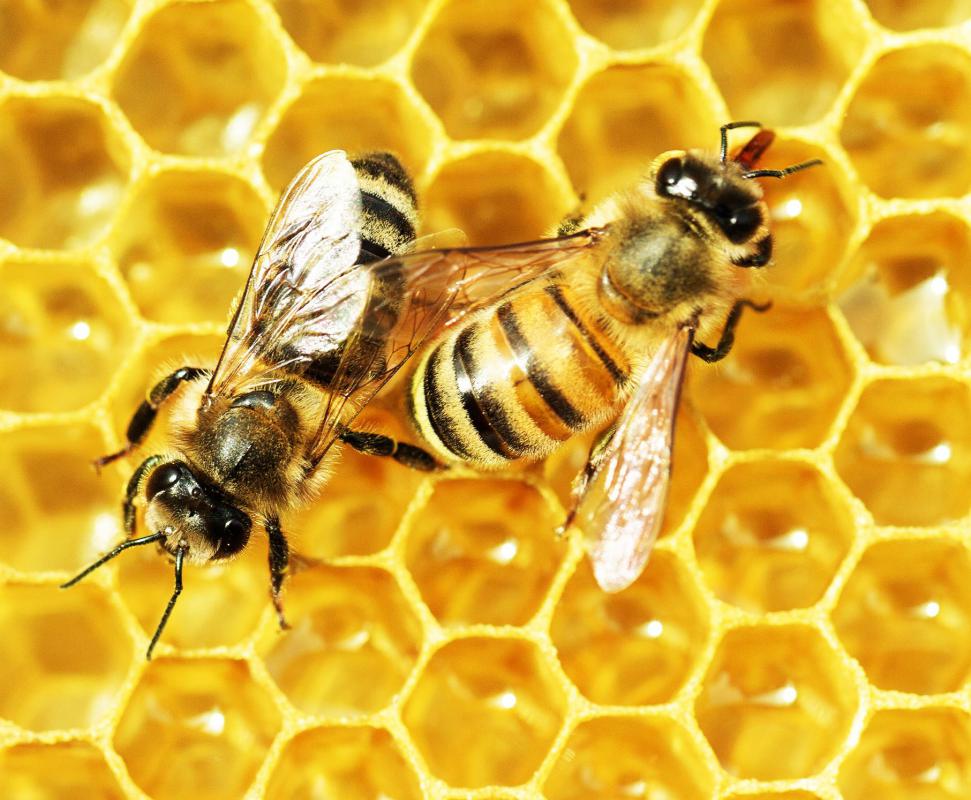At WiseGEEK, we're committed to delivering accurate, trustworthy information. Our expert-authored content is rigorously fact-checked and sourced from credible authorities. Discover how we uphold the highest standards in providing you with reliable knowledge.
Is There Hope for Honeybees Against American Foulbrood?
Honeybees – and pollinators more generally – need all the help they can get. With threats ranging from air pollution and climate change to pesticides and habitat loss, the outlook for pollinators can seem bleak.
One of the deadliest threats for honeybees comes from Paenibacillus larvae, a bacteria that causes an infectious disease called American foulbrood. Spread through spores, the infection can destroy honeybee colonies by killing larvae – essentially turning them into smelly brown goo.

Yet the world’s first honeybee vaccine could dramatically alter their chances of survival against this disease. It’s been given a conditional license by the U.S. Department of Agriculture for distribution to commercial beekeepers and could become more widely available later this year.
If the word “vaccine” has you imagining bees receiving injections via tiny syringes, think again. Developed by the U.S. biotech company Dalan Animal Health, the vaccine contains dead Paenibacillus larvae cells and is delivered to worker bees through their food. It is then passed onto the queen through the royal jelly the workers secrete for her consumption. The larvae in her ovaries become immunized, protecting them from the scourge of American foulbrood.
What all the buzz is about:
- Prior to the vaccine's approval, the only option beekeepers had against American foulbrood was to use antibiotics, which was expensive, time-consuming, and only somewhat effective. More often than not, infected hives had to be burned to prevent further spread.
- Dalan’s vaccine is compatible with organic farming and does not contain genetically modified organisms (GMOs).
- Pollinators – a group that includes not just bees but also bats, moths, and hummingbirds – are crucial for preserving biodiversity and ensuring the production of many essential crops that humans rely on for food.
AS FEATURED ON:
AS FEATURED ON:











Discuss this Article
Post your comments